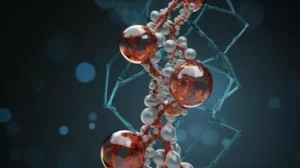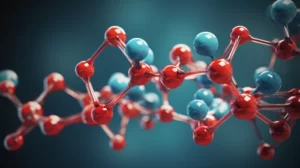When you think about anti-aging, perhaps you focus solely on the visual aspect of staying young, erasing wrinkles and maintaining a fresh complexion. But it’s important to remember that aging is also associated with an increase in the risk of various diseases. Even the healthiest among us, who adhere to the most stringent health regimes, are not immune to age-related diseases, like cancer.
In fact, the incidence of cancer in those over 65 is 10 times greater than in those younger than 65. With 60 percent of new cancer diagnoses and 70 percent of cancer-related deaths occurring in people aged 65 and older, there’s an urgent need to understand the aging process and mount a fight against age-related diseases.
Turning Back Time with Plant Extracts
A breakthrough study published in the journal Oncotarget by researchers from Concordia and Quebec-based biotech company Idunn Technologies may offer some promising news in this battle. This groundbreaking research has led to the discovery of plant extracts containing the six best groups of anti-aging molecules ever seen.
To arrive at this amazing conclusion, the research team conducted a staggering 10,000 trials to screen for plant extracts that would increase the chronological age of yeast. Why yeast? On a cellular level, yeast’s aging processes are incredibly similar to those in humans, making them an excellent model for research.
“In total, we found six new groups of molecules that decelerate the chronological aging of yeast,” said Vladimir Titorenko, the study’s senior author and a professor in the Department of Biology at Concordia. Titorenko conducted the study alongside a talented group of Concordia students and Éric Simard, founder of Idunn Technologies.
The Surprising Power of Willow Bark
One of the six groups of molecules they discovered yielded astonishing results. It demonstrated the most potent longevity-extending pharmacological effects ever described in scientific literature. The source of this incredible group of molecules? A specific extract of willow bark.
Ancient Greek physician Hippocrates was known to recommend chewing on willow bark to relieve the pain and fever. The new study showed that the extract of willow bark significantly increased both the average and maximum chronological lifespan of yeast – by 475 percent and 369 percent, respectively. These numbers far surpass those associated with rapamycin and metformin, the two best drugs known for their anti-aging effects.
“Rather than focus on curing the individual disease, interventions on the molecular processes of aging can simultaneously delay the onset and progression of most age-related disorders. This kind of intervention is predicted to have a much larger effect on healthy aging and life expectancy than can be attained by treating individual diseases,” explained Simard. Excitingly, he also added that these new molecules will soon be available in commercial products.
Why This Study Matters
The implications of this study are profound and wide-reaching. The discovery of these plant extracts containing powerful anti-aging molecules opens the door for further research and the development of new interventions to fight against age-related diseases.
By exploring the potential of these plant extracts, scientists may be able to find new methods to prevent and treat age-related diseases, extending the overall quality and length of life for millions of people worldwide. It’s clear to see that the study of aging on a molecular level is a swiftly expanding frontier with grand potential.
Using plant-based extracts is also beneficial due to their inherent natural properties deriving from the plants themselves. Introducing nature-derived solutions into the realm of anti-aging medicine could have profound effects on the way we perceive and approach age-related diseases and conditions in the future.
As we wait for the release of these incredible new molecules in commercial products, be sure to keep an eye on the evolving science of anti-aging. Future discoveries may provide life-changing breakthroughs that will not only change the way we look at the aging process, but also the way we fight against age-related diseases. The exciting journey to extend life expectancy and remain disease-free for as long as possible has just begun.



